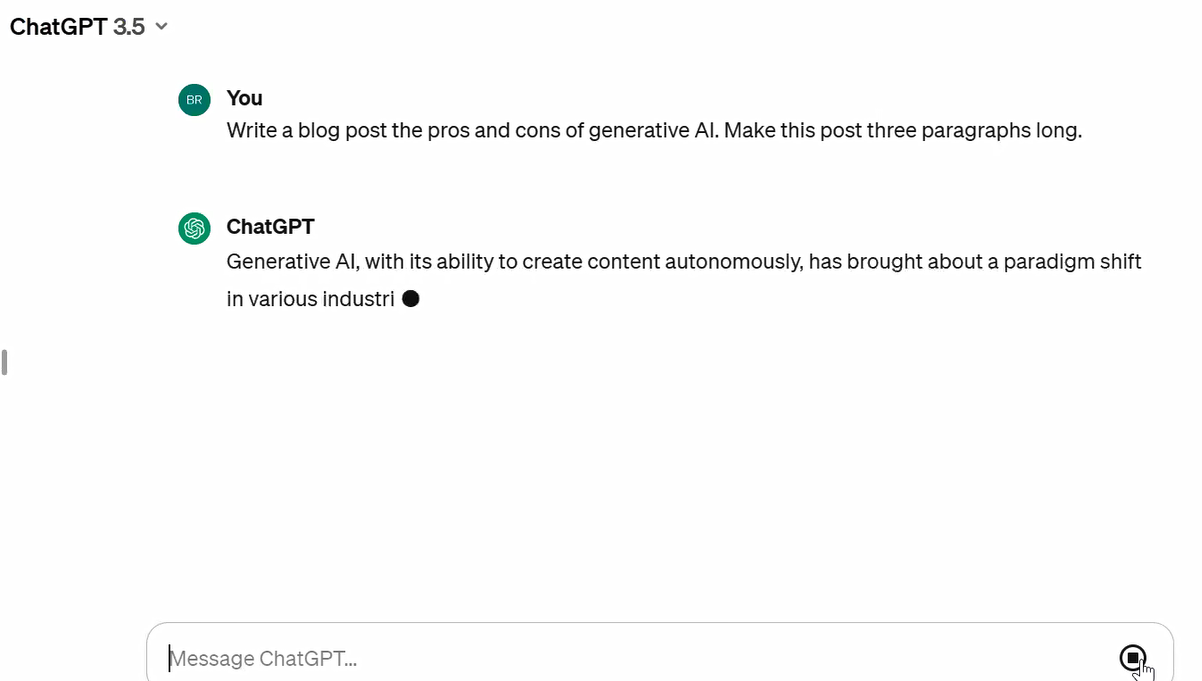AI has been a fun experiment or toy for me to play with until the last few months. Generative AI came across my TikTok feed last school year and I quickly realized that my students were already ahead of me. They were using ChatGPT. I instantly tried ChatGPT and several other AI sites to see how they worked, but also how we could teach our students to use them ethically. It was clear to me this tool was not going away!
The first assignment we gave our students was to use an image generator using descriptive language to illustrate a story they had written. Our students loved this assignment, for a variety of reasons: they were allowed to use AI in the classroom; the images created were spectacular; and they were learning something new!
We also showed our students a few drawbacks of AI, such as, the information it relies on is often wrong and stereotypical; therefore, this is not a good way to research. Secondly, using it as a writing tool is unethical.
In my own teaching practice, I have used AI in several ways. EDUAIDE.AI offers a variety of different ways to help teachers including “Lesson Seeds”. When I was struggling to plan Health within the new parameters set out by our government this year (and within a strict timeline), I used this tool. While it gave very specific ideas, I used it as a jumping off point and made the unit my own. I have also used AI to create rubrics and offer feedback for writing. It should be noted that I still need to read the writing, the feedback was for grammar only.
AI can save us so much time if employed properly. But we still need a human connection. I do not think that people will be replaced. While humans make mistakes, AI makes more mistakes. And it learns from us.

This a prompt I gave ChatGPT to write blog post about AI.

In an instant the ChatGPT gave me three paragraph blog post! I could have used it; but is that ethical? Cheating? I will include it below with the prompt for you to read…
You
Write a blog post the pros and cons of generative AI. Make this post three paragraphs long.
ChatGPT
ChatGPT
Generative AI, with its ability to create content autonomously, has brought about a paradigm shift in various industries, from art and entertainment to healthcare and finance. One of its most significant advantages is its capacity to streamline creative processes, enabling artists, writers, and designers to generate ideas and prototypes swiftly. This acceleration in creativity can lead to increased productivity and innovation, as individuals and businesses can explore a broader range of possibilities without being hindered by traditional constraints. Additionally, generative AI has the potential to democratize creativity, making it more accessible to a wider audience by automating certain aspects of content creation.
However, with its promises of efficiency and accessibility come several challenges and ethical considerations. One major concern is the potential for misuse or abuse of generative AI, particularly in the realm of misinformation and fake content generation. As generative models become more advanced, there’s a growing risk of deepfake videos, forged documents, and other forms of deceptive content being produced at scale. This poses a threat to trust and authenticity in digital media and highlights the importance of implementing robust safeguards and regulations to mitigate these risks.
Furthermore, generative AI raises questions about the role of human creativity and expertise in a world increasingly driven by algorithms. While AI can assist in the creative process, some argue that it lacks the depth and emotional intelligence that humans bring to their work. There’s also the concern that widespread adoption of generative AI could lead to job displacement in certain industries, as tasks traditionally performed by humans are automated. Balancing the benefits of generative AI with these potential drawbacks requires careful consideration and a proactive approach to addressing the associated challenges. Ultimately, while generative AI holds immense promise for enhancing creativity and productivity, its implementation must be guided by principles of responsibility, transparency, and ethical use.
